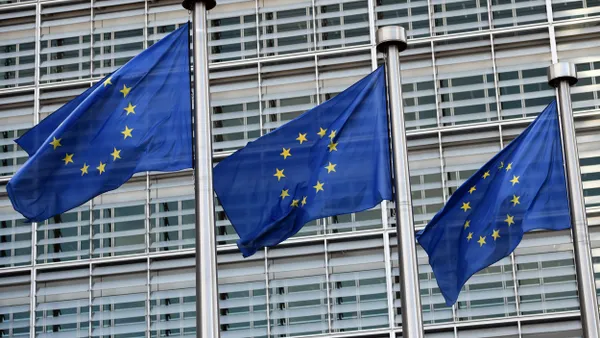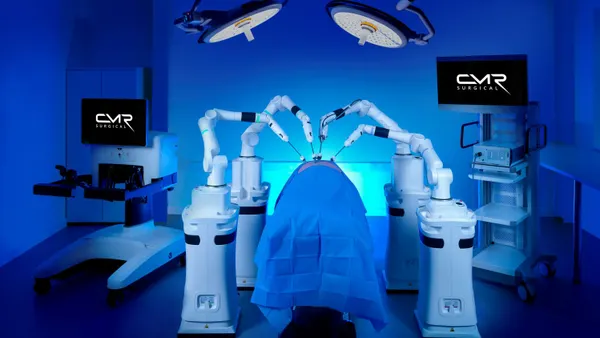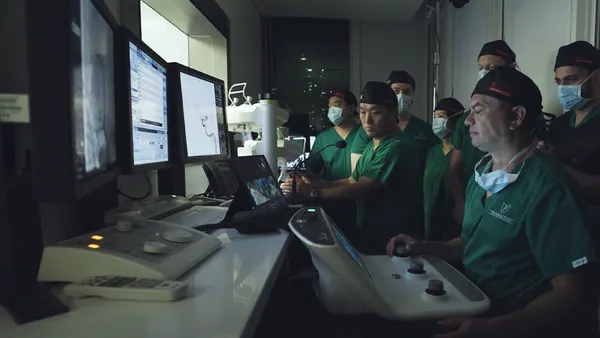Dive Brief:
-
The United Kingdom robotic surgery sector is likely to suffer if a U.K. hard split from the European Union hinders cross-border collaborations, according to a study published in BMJ Open on Tuesday.
-
According to the analysis, the U.K. has become one of the most innovative places for robotic surgery on the strength of its collaborations with other EU member states.
-
If the U.K. can replace EU partners with top-performing United States collaborators, Brexit could boost the robotic surgery sector but the researchers said that will likely be very difficult and expensive to achieve.
Dive Insight:
While the general public in the U.K. is sharply divided on the pros and cons of Brexit, the medical and scientific sectors have consistently expressed concerns about the risks of a hard split from the EU. Those risks are underpinned by a belief that U.K. science benefits from being part of the EU as it makes it eligible to design and lead cross-border collaborations.
To quantify the value of such collaborations to the robotic surgery sector, researchers at Imperial College London analyzed 3,866 peer-reviewed articles published over almost a 20-year period. The analysis resulted in maps of the collaborative networks behind robotic surgery research.
"The EU was shown to represent the U.K.'s largest collaboration partner and, more importantly, its greatest contributor to both research impact and innovation," the paper's authors wrote.
That partly reflects the proximity of the U.K. to the rest of the EU. However, the finding can also be seen as a consequence of the U.K.'s involvement in collaborative initiatives enabled by the EU. There are fears the U.K. will struggle to access, define and lead those initiatives after Brexit. Already, there is anecdotal evidence U.K. scientists are playing smaller roles in collaborations.
The authors of the research said the robotic surgery sector will be best served by the U.K. trying to maintain the current level of close collaboration with the EU. However, if that proves to be politically impossible there is still a scenario in which the authors said the U.K.'s robotic surgery sector can emerge from Brexit in a strong position.
With the U.S. as the world leader in robotic surgery, models run by the researchers suggest replacing EU partners with North American collaborators could boost the U.K. sector. The positive effects are only forecast to occur if the U.K. partners with top-performing U.S. collaborators. But researchers said the best-case scenario is unlikely to happen, at least in the near term.











